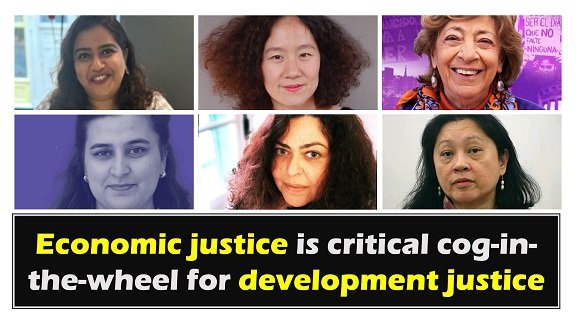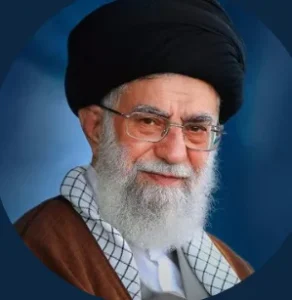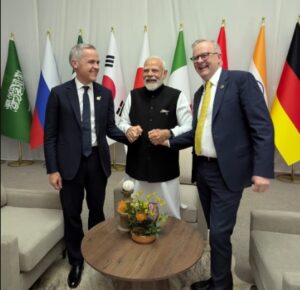
Last Updated on July 23, 2025 9:54 am by BIZNAMA NEWS
By Shobha Shukla
If we fail to dismantle systemic discrimination, structural inequality, and deep-rooted patriarchal norms, how can we expect women and gender-diverse people in all their identities to participate equitably in economic and labour markets? Economic justice is not just a policy objective—it is the backbone of genuine development justice.
At the recently concluded Fourth International Conference on Financing for Development (FfD4), global leaders and financial decision-makers gathered to address the widening gap between development goals and available financing. While the outcome document acknowledged women’s contributions to economic growth and their right to access labour markets, it conspicuously sidestepped the core issues that hinder their access—systemic discrimination, unpaid care work, and lack of legal and social protections.
“Lip service is not enough,” remarked Zainab Shumail of the Asia Pacific Forum on Women, Law and Development (APWLD). “The outcome document talks about the importance of women in the economy but fails to recognize or address the injustices they face in accessing it. Without guaranteeing decent work, safeguarding rights at the workplace, and ensuring protections for women and gender-diverse people, these promises mean very little.”
One of the few positives in the document is a call for increased investment in the care economy. However, Swetha Sridhar, Senior Global Policy Research Officer at Fos Feminista, noted that even this was underwhelming. The language used falls short of existing international standards. “The document urges governments to ‘recognise, value, and equitably redistribute’ unpaid care work, but ILO standards go further—calling to recognise, redistribute, reduce, reward, and represent unpaid care work. This was a missed opportunity to advance a transformative agenda.”
The Cost of Ignoring Sexual and Reproductive Health
While the FfD4 outcome calls for investments in universal health coverage, it fails to mention sexual and reproductive health and rights (SRHR) or bodily autonomy—glaring omissions at a time when women’s reproductive rights are under siege globally.
“How can we talk about universal health without including reproductive health?” asked Swetha Sridhar. “With rising military spending and shrinking public services, this silence is telling.”
Mabel Bianco, veteran feminist and President of FEIM, echoed this concern. “Without access to sexual and reproductive health services—including safe abortion—we simply cannot achieve genuine development. The outcome document does not reflect that.”
A Broken Promise to Women and Girls
It has been thirty years since global leaders pledged, at the 1995 Beijing World Conference on Women, to achieve equality, safety, and empowerment for all women and girls. That commitment was enshrined in the Beijing Declaration and Platform for Action. Yet today, many of those promises remain unfulfilled.
Far from advancing those pledges, the FfD4 outcome document represents a retreat from that agenda. It fails to center the experiences, needs, and rights of women and gender-diverse people in any meaningful way.
Financing Gender Equality: The Gap Widens
According to UN Women, developing nations face a $420 billion annual shortfall to meet gender equality targets outlined in the Sustainable Development Goals (SDGs). This gap is driven by chronic underfunding, inequitable financing systems, and ineffective mechanisms for tracking spending.
Misun Woo, APWLD’s Regional Coordinator, noted that “the FfD4 document fails to deliver a financial system rooted in care, equity, and justice. It lacks any strong commitments to redress historical injustices or confront structural inequalities.”
The outcome was also silent on corporate abuses, safeguards against workplace violence, and meaningful public financing, offering instead superficial solutions that continue to benefit capital over communities.
Civil Society: Marginalised and Silenced
Lidy Nacpil, Coordinator of the Asian Peoples’ Movement on Debt and Development (APMDD), shared that the outcome document had been finalized two weeks before the conference began—leaving no room for governments to negotiate or amend the text. She condemned the process as opaque and undemocratic.
“There was no real space for civil society, no opportunity to influence the process,” said Lidy. “Once again, the voices of women, grassroots communities, and the Global South were sidelined.”
She also criticized the document for failing to address colonialism, slavery, and resource extraction from the Global South, which continue to cause economic and ecological harm. There was no meaningful reference to climate justice, fossil fuel phase-out, or redistribution of wealth. Reparations, long demanded by countries affected by historic exploitation, were entirely absent.
Gender-Just Financing Still a Distant Dream
Shereen Talaat, Founder of the Middle East and North Africa Feminist Movement, pointed out that only 4% of official development assistance (ODA) had gender equality as a primary goal, and less than 1% reached feminist organisations. Simultaneously, conflict-related sexual violence is surging, and millions of women are displaced by war and climate crises.
“The outcome document doesn’t reflect the lived realities of women in the Global South. It serves the interests of existing financial systems, not the people,” Shereen said.
Feminist Voices Call for Radical Transformation
These insights were shared during the SHE & Rights (Sexual Health with Equity & Rights) session, co-hosted by leading organisations such as ICFP 2025, IPPF, ARROW, WGNRR, CeHDI, APCAT Media, and others.
There was broad consensus: the FfD4 outcome lacks feminist ambition and fails to embed a human rights-based, gender-just approach to financing. It upholds the status quo, leaving behind those who have been historically excluded and oppressed.
The Way Forward: Rebuilding From the Ground Up
The global financial system needs a fundamental overhaul, rooted in care, justice, and reparations. Decision-making must be bottom-up, with women, girls, and gender-diverse people as co-leaders, not afterthoughts.
As the Feminist Forum’s Political Declaration noted: “Financing justice cannot be achieved without ending wars, territorial invasions, and genocides. Peace is a prerequisite for justice.”
Mabel Bianco reminded everyone not to give up: “We only lose when we stop fighting. Let’s turn our frustration into fuel. We must organise and multiply our efforts to ensure gender equality becomes a lived reality—where no one is left behind.”






